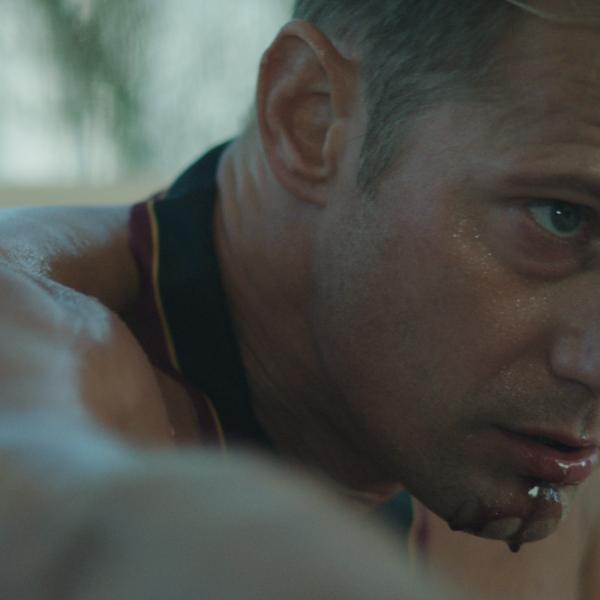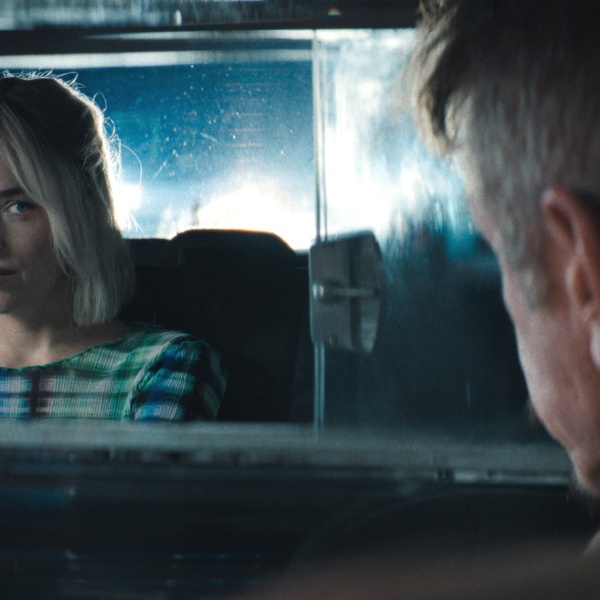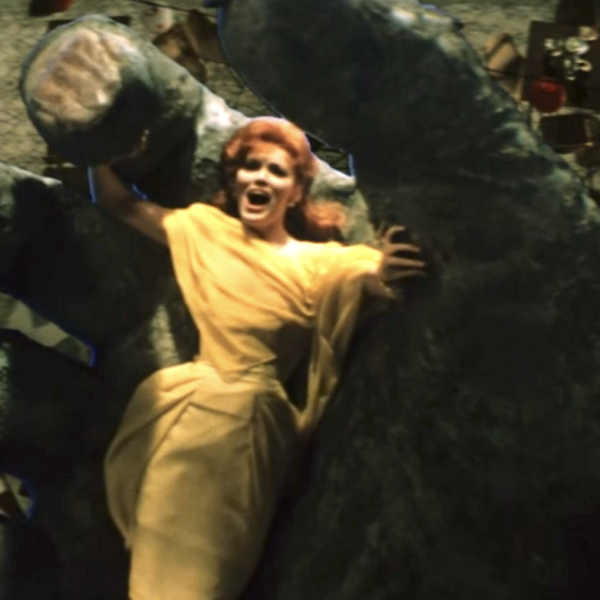
Even as many film fans might still be attempting to catch up on the best films of 2023, cinema waits for no one: 2024 is mere hours old, and with the new year comes plenty of new films. Many of them we’ve already seen, including new features from some of our favorite filmmakers, offerings from fresh faces, and extended runs for some of 2023’s best films (2024’s best? who’s counting!).
This list includes films from everyone from Jeff Nichols to Richard Linklater, Agnieszka Holland to Molly Manning Walker, Radu Jude to Bertrand Bonello. Many of them premiered on the festival circuit in earlier months, building up plenty of goodwill (and anticipation) for a 2024 release. In short, they’re proven winners. Take a look at what’s to come, how to see it, and some snippets from our full reviews below.
For those of you eager to load up your movie-going calendar for the coming months, let this list of the best films of 2024 we’ve already seen be your guide, with more curated previews to come from the IndieWire team.
Of note: This list only includes films we have seen that have a confirmed 2024 release date or have been picked up for distribution with 2024 release dates to be set.
“Sometimes I Think About Dying” (Oscilloscope Laboratories, January 26)
Sometimes Fran pictures herself lying in a quiet forest, dead. Sometimes, Fran imagines herself being lifted, probably by the neck, by a massive crane, dying. Sometimes, there’s a big snake or a desolate beach. Sometimes, yes, Fran thinks about dying. And that’s OK because Rachel Lambert’s whimsical “Sometimes I Think About Dying” and the complicated woman at its center also think about other things, good things. Like, well, not dying. Maybe even, perhaps, living. For a film about the pull of death, there sure is a lot of life in this low-key charmer.
Lambert’s initially mannered style suits the film’s wonderfully funny first act, as we’re introduced to Fran (Daisy Ridley, getting a chance to show off the kind of nuanced acting that didn’t have a place in her “Star Wars” turns), her dreams of dying, and the spectacularly boring life that might make anyone ponder the great beyond. Fran’s days are mostly spent in the distant company of her sweet, if banal co-workers (really, aren’t the people you work with the people you spend the most time with? and how horrifying is that?). An office drone at the port authority of a tiny Oregon sea town, no one seems to notice Fran much, just the way she’d like it. Or does she? Read IndieWire’s full review.
“How to Have Sex” (MUBI, February 2)
Less an instructional film than a sloppy-drunk after school special about a girls trip gone wrong, Molly Manning Walker’s “How to Have Sex” folds a nuanced look at the pressures and permissiveness of teenage friendships inside a didactic story about the vagaries of consent. Needless to say, that’s not the movie Walker’s three 16-year-old heroines were hoping to be in when they arrived on the Greek island of Malia for the kind of boot-and-rally bacchanalia that British kids have turned into a rite of passage. They signed up for “Spring Breakers,” only to find themselves stranded in something closer to an episode of “Skins.”
It’s not their fault. Best friends Tara, Em, and Skye have no way of knowing they’ve walked into a trap. They can’t hear the muted soundscape that Walker creates for them as they arrive on their first beach; they can’t see that cinematographer Nicolas Canniccioni is shooting them with a detached remove that portends social horror even more clearly than it promises sexual hedonism (it should be noted that first-time director Walker is a gifted DP herself, having recently lensed the Sundance highlight “Scrapper”). Read IndieWire’s full review.

“The Feeling That the Time for Doing Something Has Passed” (Magnolia Pictures, April 26)
“I love that you never do anything for me…it’s like I don’t even exist.” That’s what Ann, a depressed thirty-something New Yorker, tells her older on-and-off BDSM lover in the first scene of writer-director Joanna Arnow’s “The Feeling That the Time for Doing Something Has Passed,” in which the filmmaker also stars as Ann. Her heroine is an existentially moribund millennial wasting away in an anonymous-feeling corporate job who passes her time with sexual debasement when not quarreling with her nagging Jewish family.
This clever and disquieting indie unfolds at a clip somnambulant enough to match its lead’s spiritual stupor, whether she’s spreading her ass for her partners (clients?) or on the phone with her needling mother insisting that, no, she isn’t running out of breath despite trudging up and down the Manhattan streets. (She very much is, and running in place within her life.) Kneejerking viewers might draw a cross between Miranda July mumblecore and Lena Dunham unfilteredness here in terms of Arnow’s willingness to degrade herself on camera, but that’s a comparison the filmmaker would probably be annoyed over and one that elides the movie’s uniquely droll vibe. Read IndieWire’s full review.
“Disco Boy” (Big World Pictures, February 2 and February 9)
It might be reductive to call “Disco Boy” a kind of club kid cousin to “Beau Travail,” but the comparisons aren’t entirely off. Like Claire Denis’ Sight and Sound chart-topper, here is a tour with the French Foreign Legion, another dissection of colonial roleplaying spent among a taciturn lot who find best expression in the rhythms of the night. So let’s dispense those comparisons up front, and with a degree of military efficiency befitting both films: While director Giacomo Abbruzzese does indeed pay homage to a direct artistic forbearer, his debut film stands (and writhes and shimmies) all on its own.
Pushed and pulled by another intensely physical Franz Rogowski turn, “Disco Boy” follows a man ever on the move, a paperless migrant whose name, identity, nationality and, it seems, spiritual sense of self remain constantly in flux. Read IndieWire’s full review.

“The Bikeriders” (Focus Features, June 21)
Twenty years ago, Jeff Nichols found a book of photographs on his brother’s coffee table about an outlaw motorcycle club that rumbled around the American Midwest during the 1960s, and he immediately recognized it as the coolest fucking thing that he’d ever seen in his entire life — both the book itself, and the people in it.
To watch the greasy-as-hell movie Nichols has now adapted from Danny Lyon’s “The Bikeriders” is to know how he felt in that moment. And to watch that movie stall out after 45 of the most exhilarating and self-possessed minutes that Nichols has ever cut together is to know how he’s struggled to find a story worthy of the dirt-stained denim he’s been dreaming about ever since. As the leader of the Vandals laments about the crew that’s starting to slip away under his feet: “You can give everything you got to a thing and it’s still just gonna do what it’s gonna do.” Read IndieWire’s full review.
“The Beast” (Sideshow and Janus Films, TBA 2024)
Compelling evidence that every major arthouse director should be required to make their own “Cloud Atlas” before they die, Bertrand Bonello’s sweeping, romantic, and ravishingly strange “The Beast” finds the French director broadening — and in some cases challenging — the core obsessions of his previous films into a sci-fi epic about the fear of falling in love.
Split into three lightly intercut parts that trace the connection between two star-crossed souls (embodied by Léa Seydoux and George MacKay) from 1910 to 2044, Bonello’s latest and most accessible movie begins by literalizing the same basic premise that has undergirded previous work like “House of Tolerance” and “Zombi Child”: The past is always present (a dialectic explored here with the help of a machine that encourages people to purify their DNA by purging themselves of any emotion left over from their past lives). Read IndieWire’s full review.

“La Chimera” (Neon, TBA 2024)
Just when it seemed like Cannes couldn’t get any worse for “Indiana Jones and The Dial of Destiny,” it turns out that James Mangold’s $300 million sequel wasn’t even the festival’s best movie about a sad and grumpy archeologist who chases a band of tomb raiders across the waters of Italy in order to stop them from selfishly exploiting a priceless artifact from before the birth of Christ. What are the odds?
Strange as that coincidence might be, it’s no surprise that Alice Rohrwacher’s new film is better than a Disney blockbuster that happens to share the same general milieu, but it’s worth pointing out that the arthouse version of this story is far more entertaining than the studio blockbuster take. It’s also shorter (if only just), sexier (by a lot), and Isabella Rossellini-er (imagine her doing a catty, live-action riff on her character from “Marcel the Shell with Shoes On”). It even has a better villain, played to perfection by an obvious but unexpected European star whose performance here could be slotted into a summer tentpole without missing a beat. Read IndieWire’s full review.
“Do Not Expect Too Much from the End of the World” (MUBI, TBA 2024)
It takes flair to concoct visual-gag-after-visual-gag within episodic riffs on the raw deals suffered by the gig-economy-classes in modern day Bucharest. Radu Jude blends absurdist humor with keen social integrity, like a sharper Romanian riposte to Ruben Östlund, as the trials of a dangerously overworked production assistant named Ange (Ilinca Manolache, sensational) builds to a 40-minute final shot in which tragicomedy is heaped upon tragicomedy to unbearably brilliant effect.
Observing a nation’s shortcomings is not typically this fun. Yet — unlike latter-day miserabilist works by the likes of Ken Loach — Jude’s “Do Not Expect Too Much from the End of the World” and its barbs stick entirely because Jude trusts his audience to appreciate tonal scope. Read IndieWire’s full review.

“Evil Does Not Exist” (Sideshow, TBA 2024)
“Evil Does Not Exist,” the title of the latest film from “Drive My Car” director Ryûsuke Hamaguchi, is a bold statement to make in the year 2023. As it turns out in this eerie and elusive ecological tone poem about man, nature, and man’s nature, the statement is not necessarily something the Japanese filmmaker believes.
This made-in-secret and gently lilting film set in a bucolic village on the outskirts of Tokyo seems like a call for compassion on the surface — it centers on how the village’s inhabitants tangle with a corporation trying to set up a glamping site in their forest, only for the two opposing sides to eventually find common ground. But that entente proves a foil for a much darker twist Hamaguchi pulls in the film’s last act. Read IndieWire’s full review.
“Green Border” (Kino Lorber, TBA 2024)
If you’ve seen “Europa Europa”, the real-life story of a Jewish boy who escapes a Nazi concentration camp and joins the German army, you’ll know that the Polish director Agnieszka Holland knows how to make films about people wriggling their way through life. Her latest film, which is in competition at Venice, tells several interlinked stories in and around the swampy forest border region between Poland and Belarus. We meet border guards, activists, and refugees themselves. Despite biting off a bit more than it can chew, it’s an affecting introduction to a little-known crisis and the latest case of a master filmmaker showing us they can still do it.
Six weeks out of a national election in which Poland’s hard-right government is expected to extend its grip on power, “Green Border” also has a moral urgency beyond its representation of refugees’ hardship, who are described by members of Poland’s Straż Graniczna as “tourists.” If only it were so easy. The Belarusian government allows flights from war-torn parts of Africa and the Middle East in order to send migrants toward Poland, creating problems for its neighbor, a member of NATO and the European Union. Read IndieWire’s full review.

“His Three Daughters” (Netflix, TBA 2024)
Katie (Carrie Coon) cannot believe no one got her father’s Do Not Resuscitate order signed before he slipped into unconsciousness. Christina (Elizabeth Olsen) is rifling through her old boxes to find a comforting Grateful Dead concert tee. Rachel (Natasha Lyonne) has way too many bets going and way too much pot to smoke to pay too much attention to whatever the hell her sisters-in-name-only have going on. A few steps away, down a short hallway and behind a thin door, lies their father (Jay O. Sanders), only the steady beep of the various machines that have infiltrated his home assuring us he’s still, for now, alive.
Other infiltrations play primary roles in Azazel Jacobs’ warm-hearted grief tale, “His Three Daughters,” and those include Katie and Christina, who have arrived to ease their dying father into the next stage of his existence while overlooking the contributions of their other sister, Rachel, who has been there all along. And yet none of them can really see each other clearly, at least at first, and this trio is stuck on the most basic details: Katie is too bitchy, Christina is too woo-woo, Rachel is too high. For a while, that’s what we see, too. Read IndieWire’s full review.
“Hit Man” (Netflix, TBA 2024)
Based on a 2001 Texas Monthly article by Skip Hollandsworth, Richard Linklater’s breezily amusing “Hit Man” — one of those laugh-light comedies that bills itself as “a somewhat true story” — begins with a premise that requires a greater suspension of disbelief than many people might be able to muster.
Can you believe that a straight-laced New Orleans college professor named Gary Johnson, a sexless birder who lives alone with his cats and drives a Honda Civic, could start moonlighting as a phony hit man for the local police? Sure. Can you believe, as we’re told, that Gary is so good at luring customers into confessing their intended crimes because his face is as forgettable as his name? Maybe, but it would probably be less of a stretch if Gary weren’t played by “Top Gun: Maverick” star Glen Powell, who is plainly one of the most handsome and charismatic human beings on planet Earth (and also a co-writer and producer on this movie). Read IndieWire’s full review.

“Io Capitano” (Cohen Media Group, TBA 2024)
Like Africa’s “first” film “La Noir De…” (AKA “Black Girl”) (1966), “Io Capitano” begins in Dakar, Senegal. And just as in Ousmane Sembene’s masterpiece, the promise of Europe tempts a young protagonist away from its vibrant streets and warm community to be degraded, dehumanized, and abused. While “La Noir De…” saw a young woman arrive in Antibes, only to find life there a brutal and cruel nightmare that she cannot bear, “Io Capitano” follows 16-year-old Seydou and his cousin Moussa on a tortuous journey just to reach Italy’s shores.
From Italian director Matteo Garrone, best unknown for the unflinching Mafia thriller “Gomorrah,” which saw Naples become a hellish war zone, his latest is the first that sees Italy from an outsider’s perspective, gazing at it through the eyes of those who perceive it as the light at the end of a dark and twisted tunnel. By leaving the borders of his homeland, he has created an utterly stunning and uncommonly human look at the descent into Hades that so many people face when they journey to Europe, dreaming of creating a better life for themselves. Read IndieWire’s full review.
“Janet Planet” (A24, TBA 2024)
In the opening moments of “Janet Planet,” Annie Baker‘s understated miracle of a directorial debut, a young girl runs across a darkened field into a seemingly abandoned structure. She picks up the phone in the dimly lit wooden room and makes a shocking claim: She’s going to kill herself.
It’s a disorienting statement that makes the viewer immediately question what exactly this film is or may become. It also turns out to be a wry joke that serves as an introduction to Lacy (newcomer Zoe Ziegler), the wonderfully peculiar preteen whose perspective is the movie’s engine.
Lacy’s threat, it turns out, is an empty one. She just wants her mother Janet (Julianne Nicholson) to come pick her up from camp where she’s feeling like an outcast and uses an overly dramatic ploy to get what she wants. Janet, who gives the film its title, obliges, and it’s the first glimpse of the fascinating and idiosyncratic codependent relationship that Baker brings to life in her first feature. Read IndieWire’s full review.

“Problemista” (A24, TBA 2024)
Julio Torres brings his unique sense of humor, wildly inventive visual style, and ability to craft a biting satire together in his directorial debut, “Problemista.” The result feels like A24‘s answer to Boots Riley’s “Sorry to Bother You,” a film with a peculiar and poignant perspective about the woes of living in the current American society and navigating an indecipherable system. It also presents a dream-like world where people literally disappear when their visas expire, where arguments evolve into imaginary talks with community theater-like costumes, and where FileMaker Pro is the single greatest evil ever devised by humankind.
Torres has made a career out of crafting idiosyncratic, otherworldly comedy that nevertheless captures cultural moments, like his “Papyrus” or “Wells for Boys” sketches on SNL, or how “Los Espookys,” which mixed magical realism, some of the most bizarre imagery on TV, and fantastically sharp commentary. Here, he leaves behind the horror, but still masterfully blends his sensibilities with the format of an indie comedy about a young El Salvadoran man, Alejandro (played by Torres himself) trying desperately to make it in NYC, and the bond he forms with a loud, quirky former art critic (Tilda Swinton) trying to get a gallery to exhibit the egg paintings her cryogenically frozen husband once painted. Read IndieWire’s full review.
“Woman of the Hour” (Netflix, TBA 2024)
Almost every woman has a story: A stranger who followed her through a parking garage. A cab driver who asked uncomfortably personal questions. A date who became frighteningly obsessive. A friend who wouldn’t take no for an answer. The frightening banality of these events is the engine that drives “Woman of the Hour,” the directorial debut from actress Anna Kendrick.
Based on the true story of serial killer Rodney Alcala — who was convicted in 1980 for the murders of seven women and girls, but is suspected of killing more than 100 — “Woman of the Hour” is a more mainstream study of the tension between heterosexual desire and implied violence also evoked in Jane Campion’s “In the Cut.” Unlike that film, however, “Woman of the Hour” leaves the erotics of this dilemma unexplored from the female point of view. The women in this film are not trying to square their attraction to men with their fear of them. They simply want to make it home alive. Read IndieWire’s full review.





